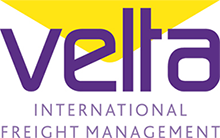
We all understand that a weakened pound means, in theory, British goods are more attractive to foreign buyers, but which overseas markets should we be looking at? And how do we tap in to them without any local knowledge or understanding of business practices and regulations?
Here’s a few tips to get you started:
Get in touch with your local Department for International Trade representative
The Department for International Trade is designed to help UK exporters and inward investors. They have a wealth of resources and can help companies to access funding to grow their business internationally.
Visit the Department for International Trade website to book an appointment with your local International Trade Advisor – it’s a completely free service… why wouldn’t you!?
Speak to your bank and UK Export Finance
Once you have identified your target market/s you need to understand how you will fund your export growth and how you will get paid & when.
Get some advice on: payment terms and methods, credit insurance cover, credit checks, letters of credit, export factoring, foreign exchange hedging.
It’s wise to research the financial aspects of your export project as early as possible.
Visit your target market
There is no substitute for understanding your market first hand and meeting prospective buyers and partners face to face.
The Department for International Trade’s ‘Tradeshow Access Programme‘ provides heavily subsidised trade missions and grants to attend international trade shows.
Don’t confine yourself to your hotel and the exhibition centre – explore! Knowing and understanding local culture and customs is vital to establishing flourishing business relationships
Tap up your freight forwarder
Your logistics partner offers a valuable link between you and your overseas customers.
Your freight forwarder can help you to overcome language barriers and time differences by communicating with your buyers on your behalf.
Many freight forwarders expect you to decide the best methods and terms of shipment but a good freight forwarder will advise on what you need to do to keep your supply chain lean and efficient so your customers are happy.
Make sure you ask your freight forwarder to check all the documentary requirements for importing in to the destination country.
Related Blogs
Developing your business for the international exports market
Key business considerations for developing products for export
The role of a freight forwarder in developing export growth for your business
7 myths of exporting
Velta Brexit survival guide – Cash flow
Velta Brexit survival guide – Minimising risk
<< Latest news and advice on Brexit >>
